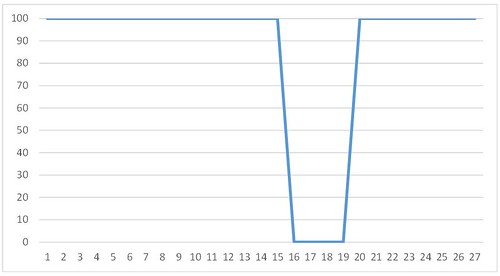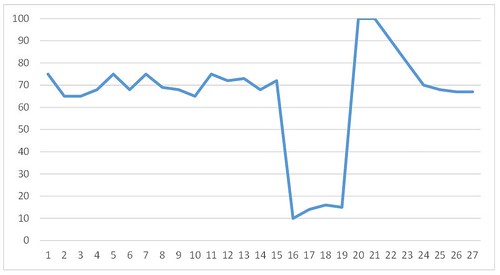My company is looking at implementing lean methodologies and/or Goldratt’s Theory of Constraints. This isn't an IT thing, so I don't know if I should be posting here. But you're all clever people with interesting views, and Lean thinking is very much part of the IT industry today (I've changed the way I run the IT department based on stuff I've read and scene on Agile Development, which comes from Lean thinking). This post really just a request for comments post as I try and get my head round a few things. I’ve read a couple of books, and watched a lot of YouTube videos, and my head is spinning.
Parkinson’s Law states that “work expands so as to fill the time available for its completion”. In any organisation people develop procedures which, whilst they may have made sense at the time, quickly become redundant and add nothing to the company’s bottom line or do nothing to better serve customers. There are procedures that are done because “we’ve always done them”. This could be producing a report that no-one bothers to read, or over-engineering a product with features that customers don’t actually use. In many cases, people will develop procedures simply because they can – either as a means to keep busy or because it serves their own self-interest. Lean methodologies are all about identifying and eliminating this waste.
I was thinking of Parkinson���s Law during a conversation with a manager the other day. He wanted to sanction an employee who is spending a lot of time on Facebook. I pointed out that a lot of our work was cyclical – we have busy times, and we have quiet times. Wasn’t it reasonable to allow the employee to use Facebook during a quiet time? The manager said that if someone runs out of work, they should ask for more, rather than doing personal stuff. A “busy” employee will always find stuff to do.
But is this a good thing? Let’s imagine two employees, Bob and Sue. Bob is considered idle and will do the minimal amount of work required. When he’s not working, he will spend his days on Facebook. Sue is conscientious. As soon as she finishes a task, she will try and find something else to do. She is always busy.
So what’s the problem? When the manager asks Bob to do something, he will do it right away, as he has no other work on. It’s easy for him to come off Facebook, do the task, and then return to Facebook as soon as it’s finished. Sue on the hand, struggles to complete the task because she has created so many other tasks and procedures for herself that she now believes are critical to the business. She complains she doesn’t have the time for any extra work, immune to the fact that most of what she does adds little or no value to the business.
Most organisations will promote Sue and sack Bob. They value Sue, not because she actually adds anything valuable to the business, but because she is always busy. They despise Bob, not because he isn’t adding anything valuable to the business, but because he appears idle.
I have friend who is a Sales Rep for a well-known pharmaceutical company. He regularly comes out top for the company’s sales. He’s a phenomenal salesman. And he only works around three hours a day. His company probably knows this, and chooses to ignore the fact, because he’s making them so much money. If he worked six hours a day would he make them even more money? Possibly, but it’s not obvious that he would. Selling drugs to doctors can be a stressful environment requiring a great deal of skill. If he worked longer hours, would the quality of his work go down? It might. Sportsmen don’t generally work 40 hours a week. Soccer players normally only train in the mornings, and play golf in the afternoons. If they worked longer hours, would they become better players? Probably not. The key is that when they are training, their training is extremely intense and focussed. Could my salesman friend be operating in a similar fashion to a top sportsman? Is he lean and focussed?
When Bob is on Facebook, is he just being idle? Or is he resting, waiting to jump into action as soon as something important comes along? Is he “lean” and is Sue “wasteful”?
As an IT guy, I like to compare humans to computers. A server does exactly what you tell it to, and absolutely nothing more. It doesn’t “ask for work”, like my manager wants Bob to do. And it spends a lot of time idle. It is idle by design. If it reaches just 75% of its capacity I get an e-mail telling me something is wrong. No-one would ever expect to run their servers at 100% capacity. No-one wants to run them at just 50% capacity. We want them to be idle most of the time, so that we know they will be able to handle any unexpected events or tasks that we require them to do. Should we treat employees the same way?
In the workforce, idle employees are often fired. Everyone pushes for productivity to go up to as close to 100% as possible. What happens then is a couple of employees go off sick, or on holiday, and the company can’t cope. Unlike with servers, there is no redundancy built in.
Of course, whilst companies push for 100% efficiency, they don’t get it, because no-one works at 100% all the time. This is where IT salesmen selling things like SANs fall down. They assume a company is at 100%, so any server downtime is a disaster. They present graphs like the following:

On the X axis we have time, on the Y axis we have efficiency. People are working at 100% efficiency when the server goes down. They immediately drop to 0% until the server is fixed, and they return to 100%. This is represented by the big dip on the graph. So for every second that the server is down, the company is losing money. That lost money is used to justify buying a couple of SANs to mitigate any server failure.
But I suspect the reality is more like the graph below. This looks more like a performance monitor for a server.

We see that people are working at around 70%. Busy, but not too busy. When the server fails, their productivity drops. But it doesn’t drop to zero, because people always have other work they can be doing – like sorting out their filing cabinets. When the server comes back, their productivity his 100% for a while, they are really, really busy catching up on work. But once they’ve caught up, they can relax and return to their normal 70%.
We currently have a desire to be a “Lean Company”. We want to use lean methodologies to increase productivity. I say productivity, but that may not be the right word. Not in the traditional sense. If you’ve studied Goldratt’s Theory of Constraints, you’ll know that you can lower productivity, increase throughput, and make more money. The same with Lean theories – a company can become super-efficient at creating waste. It’s about doing productive activities that add value, and eliminating activities that create waste. One thing that has disappointed me with the literature I’ve read on Lean and Theory of Constraints, is that they don’t generally cover the human aspects of work. They don’t allow for the physiological difference between Bob and Sue, and how they have different work motivations and incentives that may affect how effectively a lean working environment succeeds. I’m interesting in behavioural economics and how studies in behavioural economics can influence lean methodologies. Books do talk about how lean is a lot to do with changing the culture of an organisation and how employees must buy-in to the theory for it to work, but they never go into specifics. That’s what I’m trying to get my head around at the moment.
Still with me or have I sent you all to sleep?

